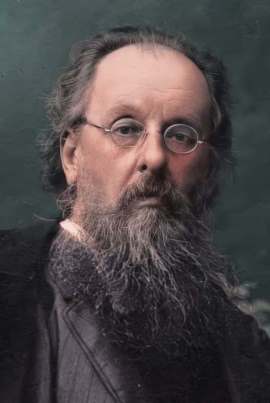Konstantin Tsiolkovsky
 Konstantin Eduardovich Tsiolkovsky (1857-1935) was a Russian scientist, engineer, and pioneer in the field of rocketry and astronautics. He is considered one of the founding fathers of modern astronautics, and his work played a significant role in the development of rocketry.
Konstantin Eduardovich Tsiolkovsky (1857-1935) was a Russian scientist, engineer, and pioneer in the field of rocketry and astronautics. He is considered one of the founding fathers of modern astronautics, and his work played a significant role in the development of rocketry.
Tsiolkovsky was born on September 17, 1857, in Izhevsk, Russian Empire (now Udmurtia, Russia). Despite a challenging childhood marked by illness and partial deafness, he became a scientist and opened new frontiers in science and technology.
One of Tsiolkovsky's most well-known and significant works is his treatise "The Exploration of Cosmic Space by Means of Reaction Devices." In this work, he proposed concepts for using rocket engines to achieve space velocity and explore outer space. He conducted numerous calculations and put forward the fundamental principles of rocketry, including the principle of equal and opposite momentum in an ideal reactive engine, the laws governing changes in velocity and mass of a rocket during flight, and the use of multi-stage rocket engines.
Tsiolkovsky also envisioned the possibility of using artificial satellites for telecommunications and navigation, as well as for the exploration of other planets and celestial objects. He recognized the importance of developing and applying technologies capable of sustaining long-duration space travel.
While Tsiolkovsky did not live to see his ideas and concepts realized during his lifetime, his work became the foundation for the future development of astronautics. His scientific research and technical innovations had a significant impact on the global space community and inspired many scientists and engineers to continue
researching and advancing space technology.